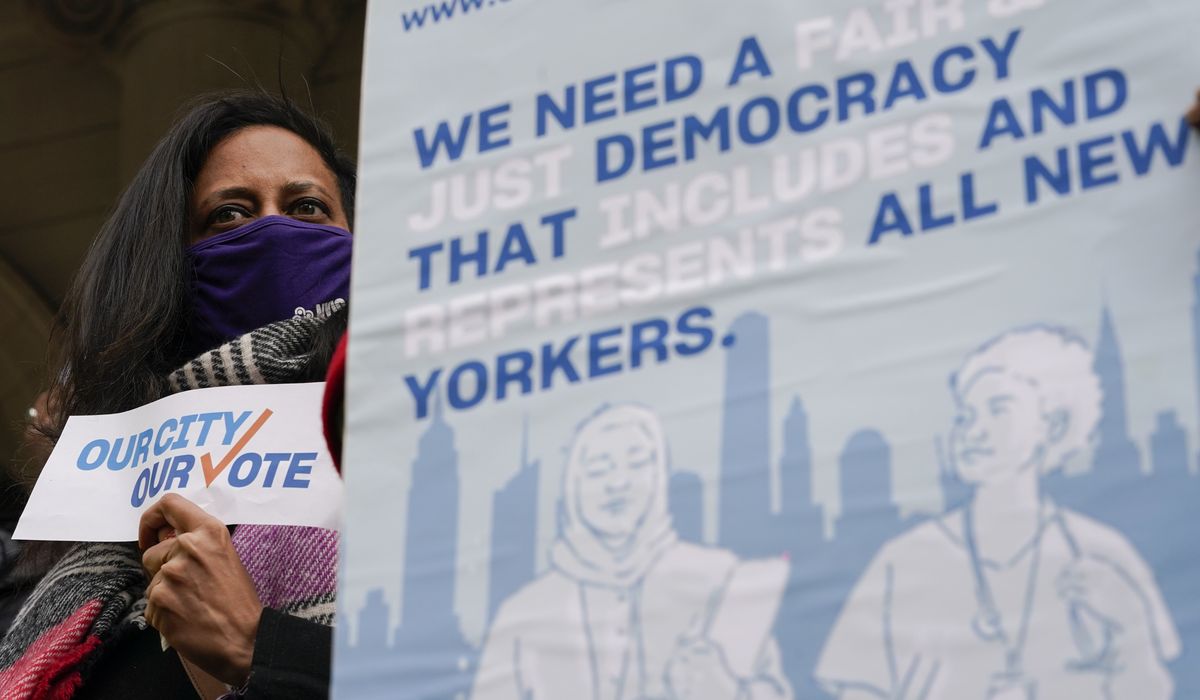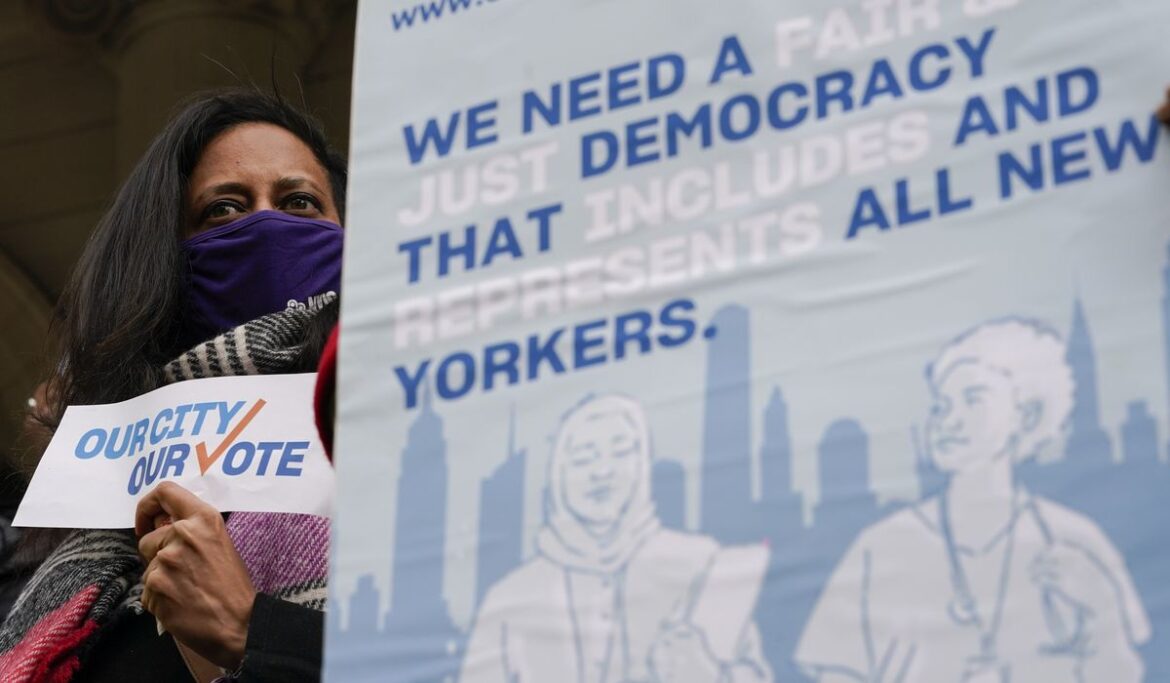
Sen. Marco Rubio, Florida Republican, said Friday he plans to introduce legislation to withhold federal funds from cities that permit citizen voting, a day after the New York City Council moved to allow legal residents to cast ballots in local elections.
“No city which allows non-U.S. citizens to vote should receive U.S. government funds,” Mr. Rubio tweeted. “Next week I am going to file a bill to make that the law.”
The New York City Council voted 33-14 Thursday to extend the franchise for municipal elections to lawful permanent residents who have resided in the city for at least 30 consecutive days, and who otherwise meet the qualifications for voting.
New York City Mayor Bill de Blasio has said he will not veto the bill even though he has expressed reservations. The measure would become law in 30 days without his signature. Mr. de Blasio leaves office on January 1, and his successor as mayor, Eric Adams, supports noncitizen voting.
No city which allows non-U.S. citizens to vote should receive U.S. government funds
Next week I am going to file a bill to make that the law
— Marco Rubio (@marcorubio) December 10, 2021
The city would become the largest U.S. jurisdiction to grant citizens access to the ballot box, allowing the participation of an estimated 800,000 “Dreamers” and green-card holders.
The bill passed the council even though a poll released Thursday by Americans for Citizen Voting showed that 61% of likely New York voters oppose citizen voting.
“New Yorkers oppose giving non-citizens the vote by whopping majorities in every borough of the city,” said Americans for Citizen Voting president Christopher Arps in a statement. “The council isn’t furthering democracy by ignoring the voters and ramming the council’s preference through.”
The trend toward noncitizen voting is slowly gaining steam in Democratic-run jurisdictions.
San Francisco approved noncitizen voting in school board elections in 2016. In July, the Vermont state legislature overrode a gubernatorial veto to allow changes to the city charters of Montpelier and Winooski allowing noncitizens to vote in municipal elections.
Eleven Maryland cities also allow noncitizens to cast ballots in local or school elections.
Meanwhile, voters in three states—Alabama, Colorado and Florida—approved constitutional amendments on the ballot last year by hefty majorities to bar noncitizens from voting.
Supporters argue that noncitizens deserve a voice in making community decisions, while foes say that doing so dilutes the votes of citizens and that noncitizens should be required to accept the duties of citizenship before gaining ballot access.
Under the New York City bill, noncitizens would be able to register starting Dec. 9, 2022, and vote in local elections beginning Jan. 9, 2023.





